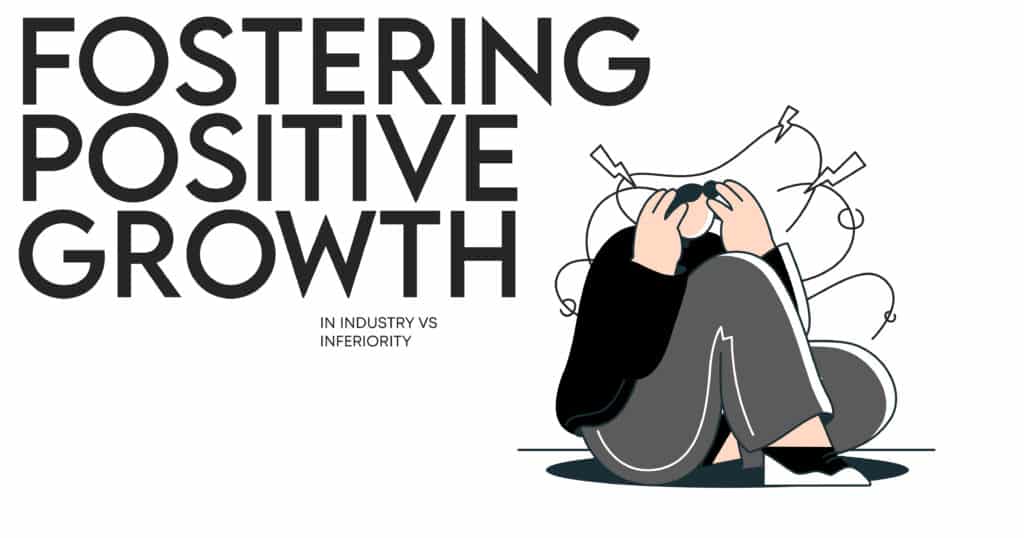Children transitioning from free play to formal learning settings during the elementary years transform themselves fully. Children meet their first tests of competence between the ages of six and twelve as they experience academic obstacles, social standards, and skill enhancement. This critical developmental stage, known as industry vs. inferiority, decides whether children develop sustained confidence or a constant sense of insufficiency.
Erik Erikson’s fourth psychological stage, the most appropriate time to develop competency via mastering new skills and attaining achievement in organized activities, is represented by the industry vs. inferiority stage. Understanding this important stage helps parents and teachers to give children the support they need to flourish during these critical formative years.
Industry Vs. Inferiority in Child Development
At this stage, children become intensely focused on learning academic subjects, and peer comparison becomes significant as children evaluate their abilities against classmates.
Success in tasks leads to feelings of industry and competence, and when there are repeated failures or criticism, it can result in feelings (negative) and self-doubt. The two possible outcomes are as follows.
Nashville Mental Health
Industry (Positive Outcome)
This outcome is associated with the understanding that children develop confidence in their abilities and feel competent to tackle new challenges. It helps them develop a strong work ethic and persistence. Self-esteem is built when consistent efforts follow success.
Inferiority (Negative Outcome)
Inferiority is linked with negative aspects, like children doubting their capabilities and avoiding challenging tasks. They lack confidence and have low self-esteem. Academic and social struggles may persist in this situation of inferiority.
The Role of Erik Erikson’s Psychosocial Stages in Childhood Development
Erik Erikson’s psychosocial stage presents a unique developmental crisis that shapes personality and psychological growth.
Erikson’s Fourth Stage Framework
Erikson’s fourth stage creates the groundwork for healthy adolescent identity formation. As it establishes patterns of self-perception, it influences success in adulthood. Cultural values and expectations shape definitions of success for children.
Teachers’ attitudes and teaching methods also impact the outcomes. Successfully resolving this stage creates resilience for future challenges, and positive experiences build motivation and determination to tackle difficult situations. On the other hand, unresolved conflicts can create lasting psychological complications.
NCBI Research
Research from the National Center for Biotechnology Information demonstrates that successful resolution of developmental stages during childhood significantly impacts long-term psychological well-being and academic achievement.
How Industry Vs Inferiority Shapes Childhood Self-Esteem
The experiences children encounter during the industry vs. inferiority stage directly influence their developing self-worth and confidence levels. Here is how it shapes:

Building Positive Self-Esteem
Positive self-esteem is developed by recognizing achievements and developing competence. It can be attained by following these steps:
- Celebrating effort alongside accomplishment, as it builds genuine confidence.
- Recognizing unique talents and strengths to validate individual worth.
- Mastering age-appropriate skills creates confidence.
- Developing problem-solving abilities increases self-reliance.
- Building resilience through overcoming challenges strengthens character.
These early competence perceptions become fundamental building blocks of childhood self-esteem.
Warning Signs of Inferiority Development
Potential signs of inferiority development can be recognized by careful watch on certain behaviors and activities, such as:
- Avoiding new activities or challenges.
- Making excessive negative self-comparisons.
- Expressing statements reflecting self-doubt.
- Showing a reluctance to participate in group activities.
- Exhibiting perfectionist tendencies or fear of making mistakes.
Early identification of these warning signs allows for timely intervention and support.
Nashville Mental Health
Building Competence During the School-Age Years
The school-age years provide numerous opportunities for children to develop competence across multiple areas. Overall competence is fostered by ensuring the following effective strategies:
- Breaking complex tasks into manageable and sequential steps.
- Providing challenges that stretch abilities without overwhelming them.
- Creating opportunities for independent problem-solving and discovery.
- Encouraging curiosity, questioning, and critical thinking.
- Teaching effective communication and cooperation skills.
Studies from Simply Psychology highlight that children who develop strong learning skills during this stage show significantly better academic performance and higher self-confidence throughout their educational journey.
The Importance of Peer Relationships in the Industry Vs. Inferiority Stage
Peer relationships become increasingly significant during the school-age years as children spend more time in group settings and naturally begin comparing their abilities with others. These peer relationships serve as mirrors for self-reflection and measuring tools for competence evaluation.
Positive influence brings collaborative learning opportunities and healthy competition effects that support overall development. On the other hand, peer relationship challenges arise from unnecessary comparisons. Addressing these issues carefully helps manage the challenges peacefully.
Developing Learning Skills: A Key to Overcoming Feelings of Inferiority
Strong learning skills are the foundation for success during the industry vs. inferiority stage. When children develop effective approaches to learning and problem-solving, they build confidence and resilience that serve them throughout their educational journey and beyond.
Essential learning skills that contribute to development include critical thinking, analytical problem-solving abilities, time management, project management, and emotional intelligence.
Parents and educators can foster effective learning skills by creating safe environments where mistakes are viewed as valuable learning opportunities.
Learn More at Nashville Mental Health
Appropriate recognition of when to support a child during this stage is equally paramount. Some children may face higher difficulty with schoolwork, peer relationships, or self-esteem issues. Early intervention helps minimize issues that hamper healthy development and attainment of future success.
Contact us today at Nashville Mental Health and find out how our veteran team can help your child develop the healthy psychological confidence and competence needed for success in life.

FAQs
What are the key characteristics of Erik Erikson’s Industry vs Inferiority stage in child development?
This stage occurs between ages 6-12 when children focus intensively on mastering academic skills, organized activities, and structured tasks. Children develop either a sense of competence and industry through successful skill mastery or feelings of inferiority when they struggle to meet expectations.
How does the Industry vs Inferiority stage impact childhood self-esteem and competence?
Children who master age-appropriate skills develop positive self-esteem, and conversely, repeated failures or insufficient support can create persistent feelings that negatively impact overall self-worth for years to come.
In what ways do peer relationships influence a child’s experience of the Industry vs Inferiority stage?
Positive peer interactions motivate children to improve their abilities and create supportive learning environments that enhance confidence. Negative peer experiences, excessive comparison, or social exclusion can significantly contribute to feelings.
Why is the development of learning skills crucial during the school-age years in Erikson’s psychosocial stages?
Learning skills provide the essential foundation for academic success and build children’s confidence in their ability to master new and increasingly complex challenges. These capabilities directly support industry development by giving children proven tools for achievement in multiple areas.
Nashville Mental Health
How can parents and educators support children in overcoming feelings of inferiority during the Industry vs Inferiority stage?
Adults can provide developmentally appropriate challenges that stretch children’s abilities without creating overwhelming stress. They can consistently celebrate effort and improvement rather than focusing solely on final results, and help children identify and develop their unique strengths and talents.












